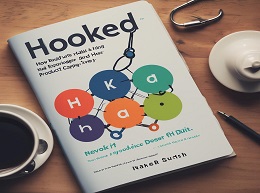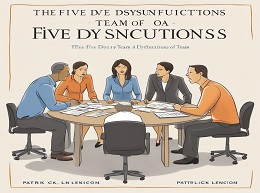Measure What Matters

Setting the Stage for Success
In "Measure What Matters," venture capitalist John Doerr introduces the concept of Objectives and Key Results (OKRs) as a powerful framework for driving organizational success. With a focus on clarity, alignment, and accountability, this book offers invaluable insights and practical strategies for setting and achieving goals. Let's explore the key themes and lessons from this transformative manifesto.
Understanding OKRs: A Framework for Success
At the heart of "Measure What Matters" lies the concept of OKRs a goal-setting system used by companies like Google, Intel, and LinkedIn to drive performance and innovation. Doerr explains the fundamentals of OKRs, which involve setting ambitious objectives and measurable key results to track progress towards those objectives. This framework fosters focus, alignment, and agility, enabling organizations to adapt to changing circumstances and achieve their most important goals.
The Power of Alignment: Cascading OKRs Across Teams
One of the key strengths of the OKR framework is its ability to align individual and team goals with the broader objectives of the organization. Doerr emphasizes the importance of cascading OKRs from top-level strategic priorities down to individual contributors, ensuring that everyone is working towards the same overarching goals. By fostering alignment and transparency, OKRs create a shared sense of purpose and direction within the organization.
Setting Ambitious Objectives: Dreaming Big and Thinking Bold
Central to the OKR methodology is the concept of setting ambitious, aspirational objectives that inspire and motivate teams to achieve greatness. Doerr encourages organizations to think big and push the boundaries of what's possible, setting objectives that stretch beyond current capabilities but are still achievable with focused effort and dedication. By setting audacious goals, organizations can unleash their full potential and drive meaningful progress.
Measuring What Matters: Tracking Progress with Key Results
In addition to setting objectives, OKRs require defining measurable key results that indicate progress towards those objectives. Doerr emphasizes the importance of choosing meaningful and actionable metrics that reflect desired outcomes and drive behavior change. By regularly tracking and reviewing key results, organizations can course-correct as needed and ensure they stay on track to achieve their objectives.
OKRs in Action: Real-World Examples of Success
Throughout "Measure What Matters," Doerr shares compelling examples of organizations that have successfully implemented the OKR framework to drive performance and achieve breakthrough results. One standout example is Google, which attributes much of its success to the disciplined use of OKRs across the organization. By setting ambitious objectives like "Organize the world's information" and defining measurable key results to track progress, Google has been able to maintain focus and drive innovation at scale.
Cultivating a Culture of Accountability and Continuous Improvement
At the heart of the OKR methodology is a culture of accountability and continuous improvement. Doerr emphasizes the importance of creating an environment where employees feel empowered to take ownership of their goals, collaborate with colleagues, and iterate on strategies to achieve success. By fostering a culture of transparency, feedback, and learning, organizations can unlock the full potential of the OKR framework and drive sustained performance over time.
Overcoming Challenges and Pitfalls: Lessons Learned
While the OKR framework offers many benefits, Doerr acknowledges that implementing OKRs effectively can be challenging and requires ongoing effort and commitment. He discusses common pitfalls to avoid, such as setting too many objectives, focusing on the wrong metrics, or failing to prioritize key results effectively. By learning from these challenges and adapting as needed, organizations can maximize the impact of OKRs and achieve greater success.
Embracing a New Paradigm of Goal-Setting
In "Measure What Matters," John Doerr offers a compelling vision of goal-setting for the 21st century, grounded in the principles of clarity, alignment, and accountability. Whether you're a startup founder, a corporate executive, or a team leader, this book provides invaluable insights and practical strategies for unlocking your organization's full potential and achieving meaningful results. By embracing the OKR framework and measuring what matters most, you can chart a course for success in an increasingly complex and competitive landscape.
This review provides a comprehensive overview of the key themes and lessons from "Measure What Matters," supplemented by real-world examples and practical insights. Whether you're new to OKRs or looking to refine your existing practices, this book offers a roadmap for driving performance, fostering alignment, and achieving your most important goals.













